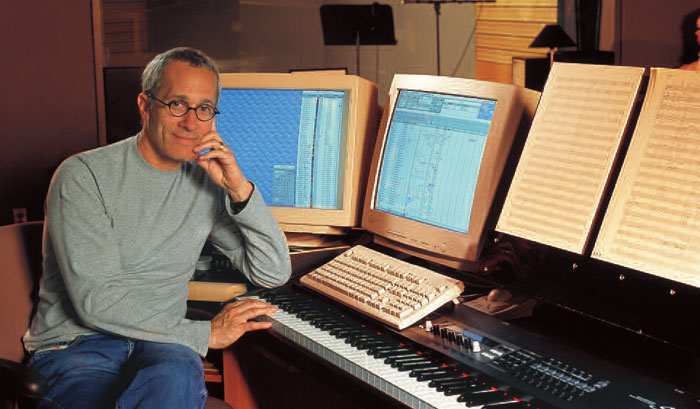


He's scored blockbusters like Dinosaur, The Fugitive, The Sixth Sense and Pretty Woman, as well as intimate critical favorites such as Mumford, Glengarry Glen Ross and Five Corners. But regardless of the film's scale, a James Newton Howard soundtrack always boasts an unerring dramatic sense, explosive energy and a hip blend of classic soundtrack devices and modern innovations. Howard spoke with us between meetings for his next project, the action thriller The Vertical Limit.
You're known for mixing synthesizers and orchestral instruments.
Synths are almost always part of my palette. I got noticed a lot for that on The Fugitive, which I don't happen to think is my best score, though some people do. I got stuck in that sound for a while on films like Outbreak and Waterworld, and by the time I did A Perfect Murder, I was a little bored with that particular blend. Now I'm tending to combine the synths with the orchestra so that they're not so obviously distinguishable from the orchestral sounds. Dinosaur, which is the biggest movie I've ever done, actually has relatively few synths, though there are a lot of sampled wind, voice and percussion sounds.
Do you tend to use samples as stand-ins for real instruments, or as sounds in their own right?
Probably more the former. I'm basically an orchestral guy, after all. But there are exceptions. For example, I used lots of ethnic percussion samples for Snow Falling on Cedars. I find that if you're not careful, a score made up largely of samples can sound one-dimensional in the theater. That's why I tend to double samples with real instruments. But I'm not putting down sampling- I'm a huge fan of it. I just got a new Yamaha A5000 sampler, which sounds wonderful. It has tremendous clarity and impact, which are very important to me in film work.
How much of the score do you specify before it gets passed on to an orchestrator?
I write every note in my control room, working from a Yamaha keyboard controller. For a long time I used a KX88 because I loved the feel so much, but now I'm using an S80, and I love it. The piano and electric piano sounds are just fantastic, and the other sounds I've heard are wonderful too. But since I'm a pianist, the main deal for me is the feel.
So how have your methods changed since your first score 15 years ago?
I've gotten more efficient and the technology has gotten better, so I get more done in less time. My sense of what will work has improved. My melodic sense is better. I know when I'm pursuing a good idea and I don't overwrite as much. Plus, I've become friends with most of my directors, so that makes my work a lot more pleasant.
























